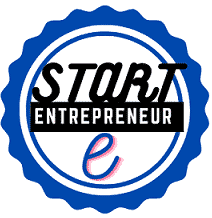Why it matters:Like the internet in its early years, blockchain technology is hard to grasp and predict, however may turn out to be ubiquitous in the trade of digital and bodily items, information, and online platforms. Figure it out now.
What is a blockchain? Blockchain is a time period broadly used to characterize a whole new suite of technologies. There is substantial confusion around its definition because the technology is early-stage, and can be implemented in some ways depending on the objective.
“At a excessive stage, blockchain technology allows a network of computers to agree at regular intervals on the true state of a distributed ledger,” says MIT Sloan Assistant Professor Christian Catalini, an skilled in blockchain technologies and cryptocurrency. “Such ledgers can comprise different types of shared information, such as transaction records, attributes of transactions, credentials, or other items of information. The ledger is often secured by way of a intelligent mixture of cryptography and sport theory, and doesn’t require trusted nodes like conventional networks. This is what allows bitcoin to switch worth throughout the globe with out resorting to traditional intermediaries similar to banks.”
On a blockchain, transactions are recorded chronologically, forming an immutable chain, and could be more or less personal or anonymous depending on how the technology is carried out. The ledger is distributed throughout many members within the community — it doesn’t exist in a single place. Instead, copies exist and are concurrently up to date with every totally collaborating node within the ecosystem. A block could represent transactions and data of many varieties — forex, digital rights, mental property, identification, or property titles, to name a quantity of.
“The technology is especially useful when you mix a distributed ledger together with a cryptotoken,” Catalini says. “Suddenly you can bootstrap a whole network that may obtain internet-level consensus about the state and authenticity of a block’s contents in a decentralized means. Every node that participates within the community can verify the true state of the ledger and transact on it at a really low price. This is one step away from a distributed market, and will enable new types of digital platforms.”
How is blockchain associated to bitcoin? Bitcoin, with a market cap of more than $40 billion, is the largest implementation of blockchain technology thus far. While lots of media attention has shifted from bitcoin to blockchain, the 2 are intertwined.
“When The Economist put blockchain on the cover in 2015, it wasn’t really about its use to assist a digital foreign money anymore. It was all in regards to the other purposes this technology will unleash within the next 5 to 10 years,” Catalini says. “For instance, in finance and accounting there may be excitement in regards to the capacity to settle and reconcile global transactions at a decrease value using the technology. In logistics the eye is all on how you ought to use the immutable audit path generated by a blockchain to enhance the monitoring of products via the financial system. Others are fascinated by the possibility to make use of this as a better identification and authentication system.”
There are two types of costs blockchain could cut back for you: the value of verification and the cost of networking. So what’s the big deal? In arecent paper, Catalini explains why business leaders ought to be excited about blockchain — it can save them cash and will upend how business is conducted.
Every business and group engages in lots of forms of transactions every day. Each of those transactions requires verification. In many circumstances, that verification is straightforward. You know your clients, your clients, your colleagues, and your corporation companions. Having labored with them and their products, knowledge, or data, you’ve a fairly good concept of their value and trustworthiness.
“But every so often, there’s an issue, and when an issue arises, we regularly have to perform some type of audit,” Catalini says. “It could be precise auditors coming right into a agency. But in plenty of different circumstances, you’re working some type of course of to ensure the particular person claiming to have those credentials did have these credentials, or the firm promoting you the goods did have the certification. When we try this, it’s a pricey, labor-intensive process for society. The market slows down and you must incur further costs to match demand and supply.”
“The cause distributed ledgers become so helpful in these instances is because if you recorded those attributes you now must confirm securely on a blockchain, you’ll have the ability to at all times return and refer back to them for free of charge,” he says. “It’s costless verification. So when you concentrate on why bitcoin works, it’s as a result of it could cheaply verify that the funds are literally there. You can switch worth from right here to anywhere on the globe at almost zero transaction value. Sending secure messages that carry worth doesn’t require a financial institution or PayPal in the middle anymore.”
In short: Because the blockchain verifies trustworthiness, you don’t have to. And the friction of the transaction is lowered, resulting in price and time financial savings.
Using a blockchain also can cut back the worth of operating a secure community. This will occur over a longer timeline, Catalini says, maybe a decade. The internet has already allowed for a faster, much less stilted trade of goods and companies. But it still wants intermediaries, nevertheless environment friendly they may be — suppose eBay, Airbnb, and Uber.
“Those intermediaries are costly and earn rents for processing payments, sustaining a popularity system, matching demand and provide,” Catalini says. “This is the place blockchain technology, mixed with a cryptotoken, lets you rethink a whole value chain from the ground up. That’s where incumbents must be barely apprehensive, as a end result of in the lengthy term the finest way you may be delivering value to your customers and competing against different firms could possibly be essentially totally different.”
Blockchain technology could imply higher privacy and safety for you and your prospects. Catalini calls it data leakage. When you give a bartender your driver’s license, all that individual needs to know is your age. But you’re revealing so much extra — your tackle, your height, whether or not you’re an organ donor, and so forth.
The similar thing happens in commercial transactions.
“As your small business associate, I have to know that you’re reliable and dependable, but for easy transactions I don’t actually need to know many other things about you,” Catalini says. “Information disclosure is increasingly changing into a value due to data breaches. We can’t keep our knowledge personal and it’s changing into more and more advanced to take action within massive organizations. So think about a mannequin the place you’ll be able to confirm sure attributes are true or false, probably utilizing a decentralized infrastructure, however you don’t have to reveal all these attributes on a daily basis.”
In a enterprise transaction context, Catalini says, a blockchain could presumably be used to construct a reputation score for a party, who could then be verified as reliable or solvent with out having to open its books for a full audit.
“Reputation scores both for companies and people are today siloed into completely different platforms, and there may be little or no portability across platforms. Blockchain can enhance on this,” he says.
Which industries may blockchain disrupt? “All of them,” Catalini says. “The technology is what economists name a general function technology, and we will see many applications across totally different verticals.”
Here are a number of to control.
Central banks:Many central banks — together with those inCanada,Singapore, andEngland— are learning and experimenting with blockchain technology and cryptocurrencies. The potential functions include decrease settlement danger, more efficient taxation, quicker cross-border funds, inter-bank funds, and novel approaches to quantitative easing. Imagine a central financial institution stimulating the economic system by delivering digital currency mechanically to residents. Don’t anticipate big strikes from big nations quickly. The threat is too excessive, Catalini says. But anticipate to see smaller, developed international locations with a high tolerance for technology experimentation cleared the path and presumably experiment with a fiat-backed, digital currency for a few of their wants.
Finance:The busiest space of utility thus far, blockchain is being utilized by companies seeking to supply low value, safe, verifiable international funds and settlement.Rippleis one of many leaders in this space on the banking facet. Meanwhile, companies likeDigital AssetandChainseek to create a sooner, extra efficient monetary infrastructure for monitoring and exchanging monetary property of any type.
Money switch:In 2014, two MIT college students raised and distributed $100 price of bitcoin to each MIT undergraduate. They needed to see what would occur and generate curiosity on campus. Catalini, together with Professor Catherine Tucker, designed the experiment and studied the results. While eleven % immediately cashed out their bitcoin, forty nine % had been still holding on to some bitcoin. Some students used the funds to make purchases at local merchants, some of whom accepted bitcoin. Others traded with one another. Meanwhile, startups around the globe competed to become the consumer buying and selling utility for bitcoin. Then PayPal purchased Venmo, a fee platform that trades cash. PayPal’s personal mobile app permits for peer-to-peer transactions, as nicely. The bitcoin-based shopper fee trade cooled down. But the applying of blockchain remains enticing because of the decrease costs it could supply parties in international, peer-to-peer transactions. Rapid fee firm Circle, which advertises itself as “Like a textual content crammed with money,”stopped permitting users to trade bitcoin last yr, however is building a protocol that permits digital wallets to trade value utilizing a blockchain.
Web browser firm Brave uses a blockchain to verify when customers have considered adverts and, in flip, pays publishers when those self same customers consume content.
Micropayments:What if, as a substitute of subscribing to a news website online, you paid just for the articles you read? As you click through the web, your browser would track the pages and document them for payment. Or what should you may get small payments for doing work — finishing surveys, working as a contract copy editor — for a selection of clients. By reducing the value of the transaction and verifying the legitimacy of events on either end, blockchain could make these micropayments, new kinds of cross-platform subscriptions, and types of crowdsourcing potential and sensible. A firm known as Brave isalready trying this, with potential ramifications for the digital promoting business.
Identity and privateness:In October 2013, the arrest of the founding father of Silk Road, adeep webmarketplace the place customers paid for illegal items with bitcoin, confirmed simply how anonymous bitcoin actually wasn’t. Nor was it ever meant to be — bitcoin addresses perform much as a pseudonym does for a author, Catalini says. Users can never fully masks their transactions. But others are trying. Zcash guarantees to be a completely private cryptocurrency. There are significant downsides to the anonymity a blockchain could offer, corresponding to the flexibility to fund terrorism or facilitate money laundering. But there are numerous virtuous purposes too — Google’s DeepMind is trying to make use of blockchain tolayer privacy and security in electronic well being care data.
Smart contracts:This software is still within the early levels, Catalini says, but by recording info on a blockchain, contracts could use that info to make themselves self-executing if certain situations are met. This idea backfired last yr whencode was exploited to steal $60 millionfrom The DAO, a blockchain-based enterprise capital firm.
Provenance and possession:A blockchain might be used to document details about bodily products, helping to verify authenticity and stop fraud and counterfeiting. London-based EverLedger istracking diamonds and envisions doing the same for fine wines. At the identical time, for all these applications, a blockchain is only as helpful as the quality of the information recorded on it within the first place.
Internet of things, robotics, and artificial intelligence:Your appliances are already talking to every other — suppose good home technologies like Nest thermostats and security systems. What if they may barter or purchase resources? What if a freeway may verify the id of and accept payment from a self-driving automotive, opening up a pay-per-use fast lane to commuters in a rush? At the outer edge of application, however not outdoors the realm of chance, Catalini says.
When will this disruption happen? Over a interval of more than ten years. Catalini is convinced blockchain has internet-level disruption potential, but like the internet it’s going to come over a multi-decade timeline with fits and begins, and occasional setbacks. Some industries, especially finance, will see drastic change soon. Others will take longer.
“A lot of the work on this house is experimental,” Catalini says. “We are at the infrastructure building stage. Bitcoin has a market capitalization of $42 billion, which is nothing in comparability with the mainstream financial platforms and exchanges that transfer trillions of dollars every single day. But the technology is maturing and growing. At some point, one of the startups on this space might reveal itself to be the Netscape of cryptocurrencies. What would follow is one thing we now have seen play out many times earlier than in history.”
Ready to go deeper? New analysis, writing, and videos from Catalini and different MIT Sloan college members is on the market atblockchain.mit.edu. Sign up there to obtain updates with the newest and most important MIT work about blockchain.
The skilled
Christian Catalini is the Fred Kayne (1960) Career Development Professor of Entrepreneurship, and Assistant Professor of Technological Innovation, Entrepreneurship, and Strategic Management at MIT Sloan. He is an professional in blockchain technology and cryptocurrencies, fairness crowdfunding, the adoption of technology requirements, and science and technology interactions. He is amongst the principal investigators of the MIT Digital Currency Study, which gave all MIT undergraduate students access to bitcoin in Fall 2014. He can be a half of the MIT Initiative on the Digital Economy. His work has been featured in Nature, the New York Times, the Wall Street Journal, the Economist, WIRED, NPR, Forbes, Bloomberg, the Chicago Tribune, the Boston Globe, and VICE News, amongst others.
This article first appeared on the MIT Sloan Management School site on May 25, here.






